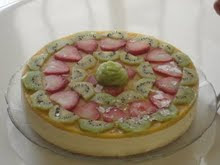
"Bush medicine had such a stigma carrying from the past
But guess what? The botanical kingdom proved "bush" world class.
There are so many terminologies for the 'Bush'
Like botanical medicines, and ethno-botanicals
Botanical actives for Nutraceuticals
Phyto-medicines, Phyto-foods and Functional foods
Can you imagine all these are big family to 'Bush medicine!
Wow! The stigma really gone."
But guess what? The botanical kingdom proved "bush" world class.
There are so many terminologies for the 'Bush'
Like botanical medicines, and ethno-botanicals
Botanical actives for Nutraceuticals
Phyto-medicines, Phyto-foods and Functional foods
Can you imagine all these are big family to 'Bush medicine!
Wow! The stigma really gone."
D.P. Robertson.
Since the 20th century, complementary medicine has been seen as an opponent to conventional medicine.
Conventional medicine is a disease-based model.
It offers the best medicine in trauma and surgery care.
It targets treating symptoms and not the underlying cause.
It is very costly ... treating the human body in parts and not as a whole, for example, cardiac cases see a cardiologist, diabetics see an endocrinologist and a prostatic patient sees an urologist.
There is routine consistency of prescribed drugs for degenerative diseases.
Medical schools are now set up by organ-specific departments, e.g. physiology, renal, and urology et al. that do not share any kind of relationship with one another.
Pharmaceutical companies and foundations fund conventional medicine.
The driving force behind conventional medicine are the pharmaceutical companies, medical doctors, pharmacists and nurses who are trained specifically within the systems.
Conventional medicine is favoured by the mass media to stimulate the consumer with 'over-the-counter' buying power.
Alternative Medicine is a prevention-based model.
It approaches medical treatment by placing its focus primarily on pro-active measures.
Treats the condition and not the symptom.
It is less cost effective.
The treatments target the whole body.
The driving force behind complementary/alternative therapies are the naturopaths, herbal practitioners, 'hands-on therapists' (reflexologies, therapeutic massagers and therapeutic touch therapists).
There are international training colleges and universities for the varied therapies.
The nutritionists of today are now reverting to the wellness programmes. Other practitioners are the wellness counsellors for emotions and stressful lifestyles.
Statistics:
Internationally, the practice of complementary medicine is rapidly expanding.
It is noted that one in every three persons uses some kind o therapy at their own cost (as insurances are not available for these treatments).
88 per cent of the world inhabitants at some stage use C.A.M.
25 per cent of all dispensed drugs are derived from plants.
During the period of 1990-2000, there is a .55 per cent increase in visits to C.A.M. practitioners, by-passing the estimated total number of visits made to conventional primary-care doctors in 2000.
Since 2000 to 2005, at least 15 per cent of the medical practitioners are now incorporating alternative therapies in their practices, and the medical schools and universities are now providing research centres in C.A.M.
Many consumers are demanding from medical doctors, natural therapies to complement with their medication.
It is ironic that the Ministry of Health is using the word 'wellness', which is a part of the practice of complementary medicine. Let us hope that this side of health care and their practitioners will be acknowledged, in the health system, shortly without interference.
Conventional medicine is a disease-based model.
It offers the best medicine in trauma and surgery care.
It targets treating symptoms and not the underlying cause.
It is very costly ... treating the human body in parts and not as a whole, for example, cardiac cases see a cardiologist, diabetics see an endocrinologist and a prostatic patient sees an urologist.
There is routine consistency of prescribed drugs for degenerative diseases.
Medical schools are now set up by organ-specific departments, e.g. physiology, renal, and urology et al. that do not share any kind of relationship with one another.
Pharmaceutical companies and foundations fund conventional medicine.
The driving force behind conventional medicine are the pharmaceutical companies, medical doctors, pharmacists and nurses who are trained specifically within the systems.
Conventional medicine is favoured by the mass media to stimulate the consumer with 'over-the-counter' buying power.
Alternative Medicine is a prevention-based model.
It approaches medical treatment by placing its focus primarily on pro-active measures.
Treats the condition and not the symptom.
It is less cost effective.
The treatments target the whole body.
The driving force behind complementary/alternative therapies are the naturopaths, herbal practitioners, 'hands-on therapists' (reflexologies, therapeutic massagers and therapeutic touch therapists).
There are international training colleges and universities for the varied therapies.
The nutritionists of today are now reverting to the wellness programmes. Other practitioners are the wellness counsellors for emotions and stressful lifestyles.
Statistics:
Internationally, the practice of complementary medicine is rapidly expanding.
It is noted that one in every three persons uses some kind o therapy at their own cost (as insurances are not available for these treatments).
88 per cent of the world inhabitants at some stage use C.A.M.
25 per cent of all dispensed drugs are derived from plants.
During the period of 1990-2000, there is a .55 per cent increase in visits to C.A.M. practitioners, by-passing the estimated total number of visits made to conventional primary-care doctors in 2000.
Since 2000 to 2005, at least 15 per cent of the medical practitioners are now incorporating alternative therapies in their practices, and the medical schools and universities are now providing research centres in C.A.M.
Many consumers are demanding from medical doctors, natural therapies to complement with their medication.
It is ironic that the Ministry of Health is using the word 'wellness', which is a part of the practice of complementary medicine. Let us hope that this side of health care and their practitioners will be acknowledged, in the health system, shortly without interference.
Diane Robertson is a pharmacist and recipient of an honorary doctorate in complementary medicine for her work in herbs. Email: yourhealth@gleanerjm.com











No comments:
Post a Comment